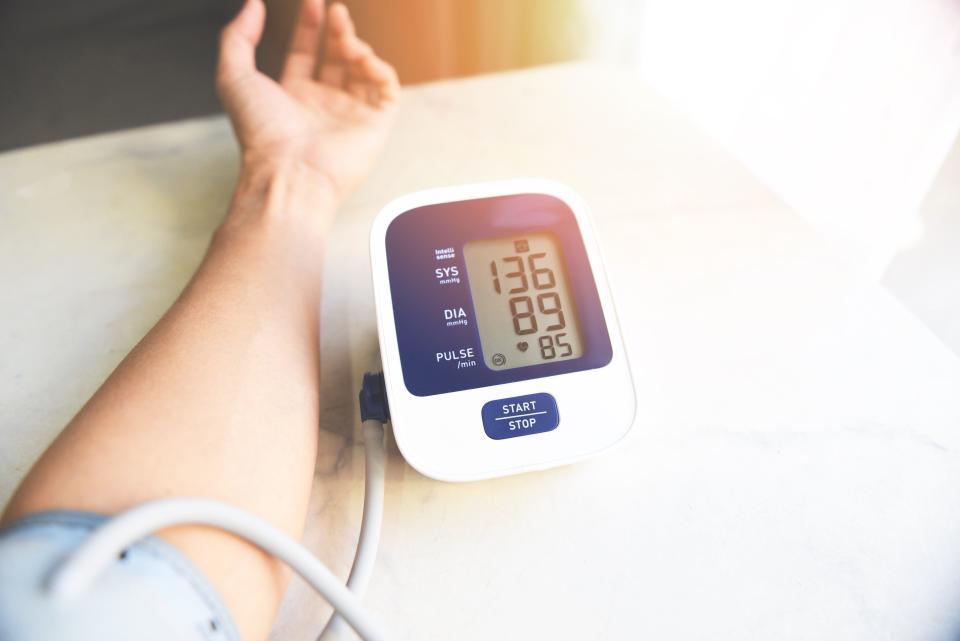Workplace checks could be way forward in improving men’s health, says minister
Offering free health checks in the workplace could be “the way forward” for improving men’s health, a minister has said.
Maria Caulfield also confirmed there are no “specific plans” for the Government to develop a men’s health strategy.
The health minister appeared in front of the Health and Social Care Committee on Tuesday for the final session of its inquiry into men’s health.
It comes after a pilot scheme to test for cardiovascular disease in workplaces was launched as part of the NHS Health Check, with the aim of delivering 150,000 checks by the end of March 2025.
Ms Caulfield told the committee: “My understanding is that they are being slightly directed towards more male-dominated places like construction sites, because the uptake in men is lower.”
The checks will test for early signs of heart disease by measuring blood pressure and body mass index (BMI), as well as asking questions on smoking history.
People will then be provided with information to reduce their risk of having a heart attack, stroke, or developing diabetes.
Digital health checks will be rolled out from September, according to Ms Caulfield, in the hope it will make it “easier for men to engage”.
The platform will allow people to input their weight and blood pressure and be signposted to advice on exercise and healthy eating.
Blood pressure checks in pharmacies could also be beneficial to men, she suggested.
“Men in particular not having to phone at eight o’clock to get through to their GP, then take time off to go to an appointment,” Ms Caulfield said.

“If they’re out on the high street on a Saturday morning they can go and get their blood pressure checked.”
She also told the committee she is “keen” on the work happening with sport and mental health.
“Trevor Steven, who’s the ex-Everton player, is doing a lot around mental health work at football grounds, because that’s where a lot of men go on a Saturday afternoon,” she said.
“And again, it’s about trusting relationships. They’re much more likely to listen to a footballer say to them ‘go and get your blood pressure checked’, as opposed to a minister.
“So I think there’s some really exciting work happening in this space, but in the workplace in particular.
“I think we’ll be looking at the outcomes of those workplace checks. And if they’re successful, I think it’s certainly the way forward.”
Ms Caulfield was challenged on whether it was a “missed opportunity” not to include mental and social wellbeing in health checks.

She said: “There is, and I think some of the work that we’re doing around men’s suicide prevention is looking at this, and is also looking at the workplace in particular as well.
“I was at a big construction site at King’s Cross – the new Google HQ – where they’ve got mental health first-aiders in the workplace. And people often say, ‘Well, they’re the big construction firms’, but actually it’s available to anyone.
“So the small sub-contractors to self-employed plumbers, whoever, can all access that.
“Good employers are recognising that the workplace, you’ve got a captive audience there. It is a place where they can do both physical and mental health checks, as well.”
The Government announced the creation of a men’s health ambassador role in November.
Jason Yiannikkou, director of system, oversight and integration at the Department of Health and Social Care (DHSC), told the committee that candidates are currently being interviewed.
He added: “The key question we asked really is a broad one, which is ‘how would you tackle the role? What would you do to sort of raise the profile of this agenda and advance the course of men’s health?’.”
Mr Yiannikkou refused to be drawn on if a woman was to secure the job.
He said: “We have to find the right person for the job and we’ll see how the process works out.”
Ms Caulfield called on the men’s health ambassador to work with men’s health groups and charities once appointed “to give those reassuring messages to men that it’s worth coming forward because if you’ve got high blood pressure, you can do something about it”.
However, she said there are no “specific plans” to develop a men’s health strategy.
Ms Caulfield described the response to the Women’s Health Strategy, which was published in 2021, as “amazing” but said it took “years to get to where we are”.
“We have got some low hanging fruit in men’s health that we can deal with now, particularly in the prevention work,” Ms Caulfield told the committee.
She added the “three key areas” are suicide prevention, prostate and lung cancers, and cardiovascular disease.
“And so there may be room for men’s health strategy after that, but with the resources we’ve got, we prefer to crack on and get on and try and drive forward some of those changes, which we need to do whether we have a men’s health strategy or not,” she said.

 Yahoo News
Yahoo News 
